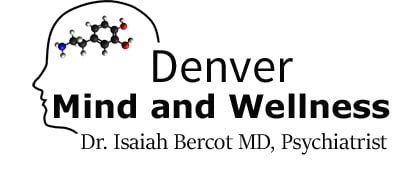
Attention deficit hyperactivity disorder (ADHD)/Attention deficit disorder (ADD) is an area of medicine that has a growing body of research. The way it is perceived by health-care providers has changed significantly in the past few decades. It is no longer seen as a disease only affecting children, but now we know it affects millions of adults in the United States alone. Estimates for ADHD/ADD prevalence in adults is as high as 10% of the adult population. It is thought that half of all children with ADHD/ADD are diagnosed but that only 1 in 5 adults are diagnosed. Our goal is to help make sure that all patients suffering from ADHD/ADD can get the help they need.

ADHD is defined by a trio of symptoms (inattention, hyperactivity, and impulsivity). All of these symptoms are thought to arise from dysfunctional levels and regulation of dopamine and norepinephrine in the brain (specifically the prefrontal cortex).
ADD is primarily defined by inattention and impulsivity. Like ADHD these symptoms are thought to arise from dysfunctional levels and regulation of dopamine and norepinephrine in the brain (specifically the prefrontal cortex).
Inattentive symptoms or inability to sustain attention may manifest itself as impaired problem-solving or impaired memory, resulting in inefficient information processing.
Hyperactive and impulsive symptoms such as excessive talking or physical movement, interrupting conversations, acting without thinking, or fidgeting are very common in children and tend to decrease in adolescence and adulthood. Nevertheless, these symptoms remain a problem in some teenagers and adults.

The key neurotransmitters of dopamine and norepinephrine have specific roles in the brain and in the manifestation of ADHD/ADD. In order to sustain attention, our neurons must send an electrical signal within the brain. The strength of this signal is regulated by norepinephrine. The ability to focus the signal is regulated by dopamine. If there are not enough of these neurotransmitters present, the signal will become weak and unfocused. On the other hand, too much of these neurotransmitters can result in a signal that is too strong and that lacks flexibility.
Our goal at Denver Mind and Wellness is to keep both neurotransmitters at an optimal balance for focus, information processing, and to reduce the burden of ADHD/ADD. We have many different medications to choose from—both stimulant and non-stimulant—either to treat individual symptoms or to treat the entire trio of inattention, hyperactivity, and impulsivity.

